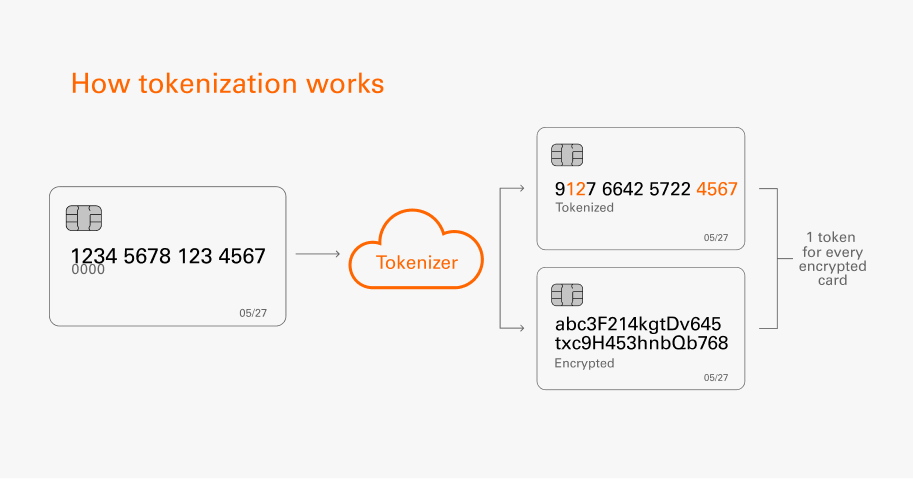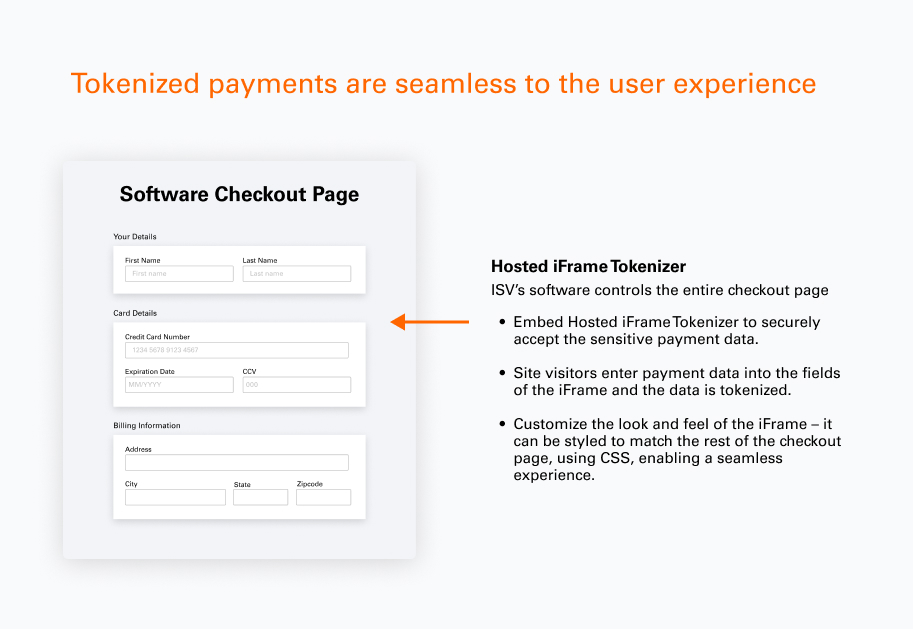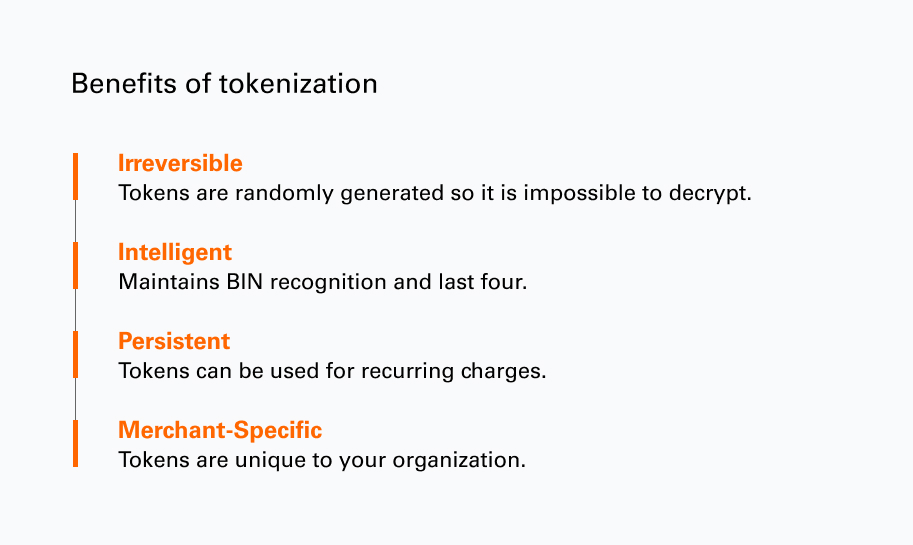
As software providers and ISVs are under increasing pressure to integrate payments into their platforms and applications, tokenization offers a more seamless, secure payment experience. But what exactly is payment tokenization, how does it work, and what are the benefits for businesses?
What is tokenization?
Understanding what tokenization is and how tokens are used is key to navigating the complexities of payment integration and the growing burden of data security. Building on our previous stories about integrated payments and how they benefit ISVs, we now examine tokenization as an emerging cornerstone of secure transaction processing.
Protecting customer payment data is crucial for businesses, especially with data breaches becoming more frequent and costly. Tokenization may be the ultimate tool in an ISV’s toolkit, as the process substitutes sensitive card data, such as a cardholder’s primary account number (PAN), with a unique, nonsensitive alternative (or token) that cannot be reverse engineered if intercepted.
Simply put; by removing sensitive customer payment data from the business environment, tokens enable safer storage of card data. This is especially useful for card-on-file transactions driven by repeat business and consumer expectations to save payment information on file for a more convenient checkout experience. This makes tokenization an ideal solution for all – ISVs, merchants and consumers alike.
How tokenization enhances payment security
Tokenization has revolutionized payment security, meeting demand for simpler, more secure payments, while reducing fraud and PCI compliance scope as well. As described, tokenization replaces sensitive credit card data with a unique identifier (token) that preserves aspects such as the card type and last four digits, but does not reveal any actual card information. By transforming card information into encrypted strings of characters, a token holds no intrinsic value, meaning that even if it falls into the wrong hands, the data remains unusable.

Tokenization provides omnichannel capability, enabling the use of a single token across any channel or environment. While tokenization operates differently depending on whether a transaction occurs in person or online, in both cases it ensures sensitive card data never resides in the merchant’s system. Instead, tokenization encrypts and stores the sensitive data in a secure vault and generates a unique token that represents the stored data.
For in-person transactions (or card-present transactions), such as at a salon, the process begins when the merchant uses an encrypted credit card reader or terminal to accept a payment. For example, when leveraging CardSecure, a P2PE-validated encryption and tokenization solution offered by Fiserv through its CardPointe platform, the terminal reads the card, encrypts the data and generates a token while maintaining point-to-point encryption (P2PE) – a key security feature that ensures only the payment processor sees the sensitive information.
For card-not-present transactions, tokenization may involve an iFrame tokenizer. A business embeds a customizable iFrame (a secure method of embedding content from one webpage into another) on its online checkout page, where customers enter their payment information. This data is then encrypted and tokenized, and the token is returned through a secure Application Programming Interface (API). Both approaches ensure the information is tokenized before it touches the merchant’s system, which not only protects sensitive data but also minimizes PCI compliance challenges.
Implementing a Hosted iFrame Tokenizer
For developers, embedding a hosted tokenizer, such as the CardPointe Hosted iFrame Tokenizer from Fiserv, offers a straightforward way to incorporate secure payments into their platform. The Hosted iFrame Tokenizer is a secure, hosted web form that contains the input fields necessary for software users or site visitors to enter their sensitive payment data. Developers can easily embed this solution in their checkout pages using an HTML iFrame element. When implemented, the iFrame securely captures credit card details, communicates with Fiserv secure servers and returns a tokenized version of the card, ensuring that the raw credit card data is never exposed to the ISV’s or merchant’s systems.
“The Hosted iFrame Tokenizer creates a seamless experience on the page,” said Bryan Greene, Director of Solutions Engineering & Partner Activation, ISV, at Fiserv.
To integrate the Hosted iFrame Tokenizer, developers simply insert a small piece of code into the credit card input field of their application or webpage. This iFrame then takes over the credit card entry process, sending the information directly to Fiserv for tokenization.

Simplifying PCI compliance through tokenization
Meeting the complex requirements and ongoing maintenance needed to meet PCI standards can put a significant burden and financial strain on ISVs and merchants, and the rising threat of data breaches further exacerbates this stress.
Tokenization reduces the PCI-compliance scope for businesses by eliminating the need to store sensitive cardholder information in their systems, thereby lowering the risk of a data breach. This decreased liability leads to time and cost savings, allowing businesses to shift resources from managing extensive security measures to improving other areas of their business, such as the customer experience.
Key benefits of tokenization for businesses and ISVs
Tokenization offers a dual advantage for businesses: It provides robust payment security while streamlining operations. ISVs benefit from integrating tokenization into their platforms by delivering secure, PCI-compliant solutions that enhance their value proposition. Further benefits include the seamless experience, and flexible customization that enables ISVs and businesses to maintain a consistent look and feel. Additionally, tokens ensure smooth multichannel transaction tracking, creating a unified customer experience across physical and digital channels.
When integrating with a solution like the Hosted iFrame Tokenizer, which minimizes the need for complex coding and integration, ISVs further benefit from a simplified development process.

Even better, tokenization helps to decrease the risk of data breaches and fraud, meaning businesses are less likely to incur reputational or financial damage as a result.
But ultimately, the real value in tokenization lies in the fact that it frees businesses to innovate and grow without the constant worry of safeguarding sensitive data, ensuring that secure, integrated payments remain at the heart of their operations.
Discover insights related to Integrated Payments


